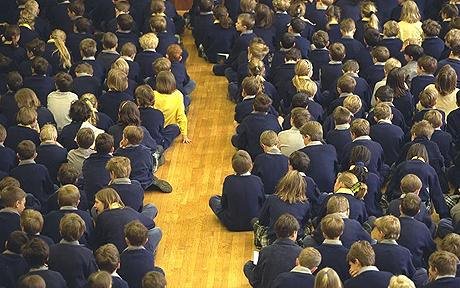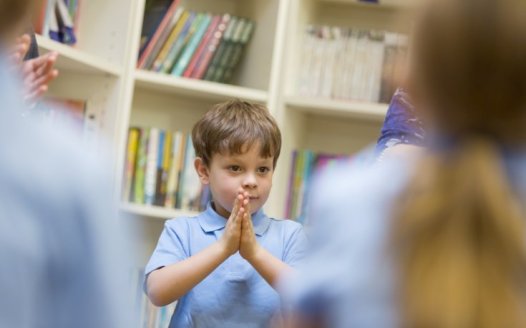Promote religious freedom in schools: abolish the worship requirement
Posted: Wed, 22nd Jan 2020 by Stephen Evans
A private member's bill to replace compulsory worship with inclusive assemblies should prompt the government to reform the archaic collective worship law, says Stephen Evans.
Since taking office last year, Boris Johnson has been clear that his government will work towards promoting religious freedom. His special envoy for freedom of religion or belief said he wanted to ensure that "every citizen around the world is able to enjoy this basic right".
But one wonders whether younger citizens are included in this pledge. I say this because freedom of religion or belief, which includes the freedom not to believe, is fundamentally undermined by the law requiring daily acts of collective worship in our schools. And the government seems reluctant to reform that law.
The law requires a daily act of collective worship for all registered pupils in all maintained schools. Worship isn't defined in the legislation, but official guidance says "it should be concerned with reverence or veneration paid to a divine being or power" and should be of a "broadly Christian character".
This may have appeared to make some sense in 1944 when the law was introduced. But such a requirement is clearly contrary to the beliefs and practices of the majority of pupils and parents served by schools in today's religiously diverse and largely irreligious society.
Some schools recognise this and flout the law. Others, particularly those with religious enthusiasts in leadership positions, apply the law to the letter – often with zeal.
But if we want future citizens to understand and respect human rights – including the right to freedom of religion or belief – it's important that we inculcate these values in schools. Instead, we're alienating pupils by pushing prayers on them, usurping parental freedoms and sending the message that imposing your beliefs on those that don't share them is perfect fine. Well, it isn't.
A private member's bill which is being introduced in the House of Lords this week goes some way to try and address this.
The Education (Assemblies) Bill 2020, introduced by Lib Dem peer and National Secular Society patron Lorely Burt, seeks to amend the current legal requirement for a daily act of collective worship in state schools without a religious character. It would be replaced with a requirement to provide inclusive assemblies that develop the 'spiritual, moral, social and cultural education' of pupils regardless of religion or belief.
Yet the government is unlikely to support even this modest proposal, which so clearly enhances religious freedom. Why is that?
Well, it's no coincidence that the only western democracy to include ex officio representation of clerics in its legislature also happens to be the only democracy in the western world to prescribe a mandatory act of worship in non-religious publicly funded schools.
This is one of many inequality issues that need addressing in schools, but are filed in the 'too difficult' drawer by education ministers mindful of the political clout of the established church and faith schools.
Discriminatory admissions arrangements, unfair employment practices, inappropriate religious education and compulsory worship all exist because religious interests want it that way and politicians take the path of least resistance.
But if Britain is to become a more peaceful and tolerant place, self-serving religious demands need to make way for a more inclusive and secular model of education. Children of all faith and belief backgrounds should be educated together and learn that religious practice is something to be freely enjoyed – but never imposed.
Schools are not churches, synagogues, mosques or temples. And this includes faith schools, which are often chosen by parents not for religious reasons, but because they're the closest or only decent school. Schools are not homogenous worshipping communities – and our policy approach to them shouldn't act as if they are.
Those that defend collective worship often point to the value of assemblies with an ethical dimension. But we need not confuse the baby with the bathwater. School assemblies based on moral and ethical precepts should continue to play an important role in pupils' spiritual, moral, social and cultural development. It's just that acts of religious worship are neither necessary nor desirable to achieve these valid educational goals.
Parents who believe their child's education should include inculcation into a religious tradition have the option of supplementing state education with home learning or Sunday school and other such religious services. But this isn't a legitimate role for the state.
The law as it stands violates the human right of freedom of belief for children and young people. It should be reformed. Let's hope Lorely Burt's bill prompts the government to do so.
End compulsory worship
No child should be compelled to pray in school. Join our campaign.








